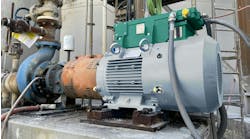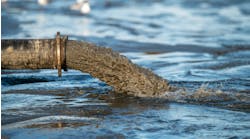November 2, 2007 — A California company, Coulter Forge Technologies, has been fined $36,000 by the U.S. Environmental Protection Agency for violations of its stormwater permit at its Emeryville, CA, plant. According to EPA, storm water from the operation runs off into a city collection system, which empties into the San Francisco Bay. "Runoff from industrial sites can pose a serious threat to the Bay's water quality" states Alexis Strauss, EPA's regional Water Division director. "The Clean Water Act requires companies to comply with permit requirements and take simple, basic steps to prevent pollutants from contaminating stormwater."
The violations were discovered during an inspection of the Coulter Forge plant in September 2006, which was followed by a compliance order in December 2006. The fine follows on the order.
According to EPA, stormwater runoff can carry pollutants from industrial sources, metals, oil and grease, acidic wastewater, bacteria, trash and other toxic pollutants into nearby water sources. It states that polluted runoff is the leading cause of water pollution in the San Francisco Bay area.
EPA regulations require industrial facilities to prevent water pollution by complying with federal and state water pollution requirements.
According to the agency, the inspection of the plant uncovered a series of problems related to storage of fluids and materials, and general maintenance of the site. The agency reports the plant had uncovered drums containing waste fluids, surface residues, and/or hazardous materials, stored outdoors. There was evidence of spills of oily substances, product wastes, and other pollutants. Significant amounts of debris, including metal shavings, were found in the plant's storm drains, and items were found stored outdoors, not on pallets or under cover. The exterior property and scrap storage areas of the plant were found to be poorly kept, and there was no berm in place to mark part of the perimeter of the property.
Finally, EPA says that Coulter Forge failed to update and revise its pollution-prevention plan, and conduct and maintain records of plant inspections.









